


JANUS

7 FUN FACTS ABOUT MIKE TYSON
BIRD QUIZ THE EVOLUTION OF CONCEPT ALBUMS
BIRD MIGRATION




JANUS

7 FUN FACTS ABOUT MIKE TYSON
BIRD QUIZ THE EVOLUTION OF CONCEPT ALBUMS
BIRD MIGRATION
Have you ever wondered why so many things in life seem to have two sides, or how change plays such a prominent role in society and the world? Yet, despite these changes, we grow stronger and more connected. Sometimes, a single action like opening a door can have a lasting impact on your life and even the world around you. If this thought intrigues you (or even if it doesn’t), let me introduce you to Janus, the Roman god of doorways, change, beginnings, and endings.

JANUS IS FAMOUSLY KNOWN AS THE GOD OF DOORWAYS AND GATES, WHICH SYMBOLIZE TRANSITIONS INTO NEW PHASES OF LIFE. WHETHER IT'S STARTING A NEW JOB, MOVING TO A NEW HOME, BEGINNING A RELATIONSHIP, OR SIMPLY ENTERING A NEW DAY, JANUS REPRESENTS THESE SHIFTS. HIS DOMAINS EXTEND BEYOND DOORWAYS; HE IS ALSO THE GOD OF TIME, DUALITY, BEGINNINGS, AND ENDINGS.
JANUS IS A ROMAN GOD ASSOCIATED WITH BEGINNINGS AND TRANSITIONS ACROSS VARIOUS ASPECTS OF LIFE. HE PRESIDES OVER THE START OF THE YEAR AND THE FIRST DAY OF EVERY MONTH, SYMBOLIZING CHANGE AND DUALITY. HE IS OFTEN DEPICTED WITH TWO FACES—ONE LOOKING FORWARD TO THE FUTURE AND THE OTHER GAZING BACK AT THE PAST.
JANUS WAS CELEBRATED MOST PROMINENTLY ON JANUARY 1ST, A DAY THAT INCLUDED RITUALS INVOLVING OFFERINGS AND GOODWILL, REFLECTING HIS CONNECTION TO AUSPICIOUS BEGINNINGS. HE ALSO SHARES TIES WITH OTHER ROMAN DEITIES, SUCH AS JUNO, THE GODDESS OF MARRIAGE, AND VESTA, THE GODDESS OF HOME AND FAMILY. TOGETHER, THEY EMPHASIZE THEMES OF INCEPTION AND CONCLUSION IN BOTH HUMAN EXPERIENCE AND SOCIETAL CUSTOMS. IN FACT, THE MONTH OF JANUARY IS NAMED AFTER JANUS, AS IT REPRESENTS THE TRANSITION FROM ONE YEAR TO THE NEXT—A TIME TO REFLECT ON THE PAST AND PLAN FOR THE FUTURE.



The Romans believed that invoking Janus at the start of any task or event was essential. His name was mentioned at the beginning of any religious rite or ceremony, often led by the rex sacrorum (a powerful high priest responsible for overseeing rituals deemed critical to the Roman state). On the kalends (the first day) of each month, sacrifices were offered to Janus by the rex sacrorum and other priests.
The most famous symbol of Janus’s power was his temple in the Forum of Rome. Its doors, called the Gates of Janus, were kept open during times of war and closed during times of peace, representing his role in transitions between conflict and harmony. People often prayed to Janus at the start of their day, before travels, or at the beginning of any new endeavour, asking for his guidance and blessings.


Even though the worship of Roman gods faded long ago, Janus’s influence remains. He is a reminder to reflect on the past while preparing for the future.
Whether you are starting a new project, a school term, or simply stepping through a doorway, think of Janus—the god who connects endings and beginnings.
BY DOROTTYA KOVÁCS

"Out of the mountain of despair, a stone of hope."
(Powerful words that come from Martin Luther King Jr’s "I Have A Dream" speech in Washington, DC on August 28, 1963.)
Martin Luther King Jr. is one of the most inspiring figures in history Known for his unshakable commitment to nonviolence, his impactful speeches, and his tireless fight for freedom, his work brought significant change in the United States. As we celebrate his birthday soon, here’s a look at everything you need to know about this extraordinary leader:
Martin Luther King Jr , born on January 15, 1929, in Atlanta, Georgia, was raised in a religious, middle-class family. From an early age, he benefitted from a strong education and a supportive home environment. His academic excellence allowed him to graduate from high school at just fifteen and immediately continue his studies at Morehouse College in Atlanta
Despite his secure upbringing, growing up in the segregated South exposed King to the harsh realities of racism, initiating his passion for justice and equality Before college, he spent a summer in Connecticut, where he was shocked by how differently people of colour were treated in the North compared to the South This experience deepened his hatred for segregation and strengthened his drive to fight for change
King later studied theology, earning a doctorate and following in the footsteps of his father and grandfather by becoming a pastor During his time at Crozer Theological Seminary in Chester, Pennsylvania, he strengthened his vision of using faith and nonviolence to fight injustice. His leadership skills could be seen even then, as he was elected president of a dominantly white senior class He went on to pursue graduate studies at Boston University, where he received his doctorate in 1955.



Martin Luther King Jr ’s journey as a leader in the Civil Rights Movement began that same year in 1955 with the Montgomery Bus Boycott. This significant moment happened when Rosa Parks, an African American woman refused to give up her seat to a white woman on a segregated bus. For violating the segregation laws, she was arrested. As a response, Alabama’s small group of civil rights advocates formed the Montgomery Improvement Association to boycott the transit system and chose King as their leader The boycott lasted 382 days and achieved a big step in the fight for freedom, as by the end of the boycott, the city’s buses were desegregated. During this time, King’s home was bombed, he was arrested, and he faced violent attacks, but ultimately, he emerged as a highly viewed leader. His dedication to nonviolent protests became the foundation of his leadership, inspired by the teachings of Mahatma Gandhi

Between 1957 and 1968, King travelled over six million miles and gave more than 2500 speeches, appearing wherever there was injustice, protest, or action During this time, he also wrote five books and many articles Continuing his fight in the Civil Rights Movement, In 1963 he led the Birmingham Campaign, where his peaceful protests against segregation were met with brutal violence. This drew national attention to the suffering of Black Americans in the South.
Later that year, King delivered his iconic “I Have a Dream” speech during the March on Washington, where he shared his vision of a world without racism and injustice. Despite being arrested nearly 20 times and physically assaulted four times, he never broke his commitment to nonviolence. In 1965, he led the Selma to Montgomery marches, demanding voting rights for African Americans. These efforts helped lead to the passage of the Voting Rights Act of 1965, a major victory for the movement.
At the age of thirty-five, Martin Luther King, Jr., was the youngest man to have received the Nobel Peace Prize Even then, he turned over all the money he received into the civil rights movement Tragically, King was assassinated on April 4, 1968, in Memphis, Tennessee, while standing on the balcony of the Lorraine Motel, which was the devastating end to his journey
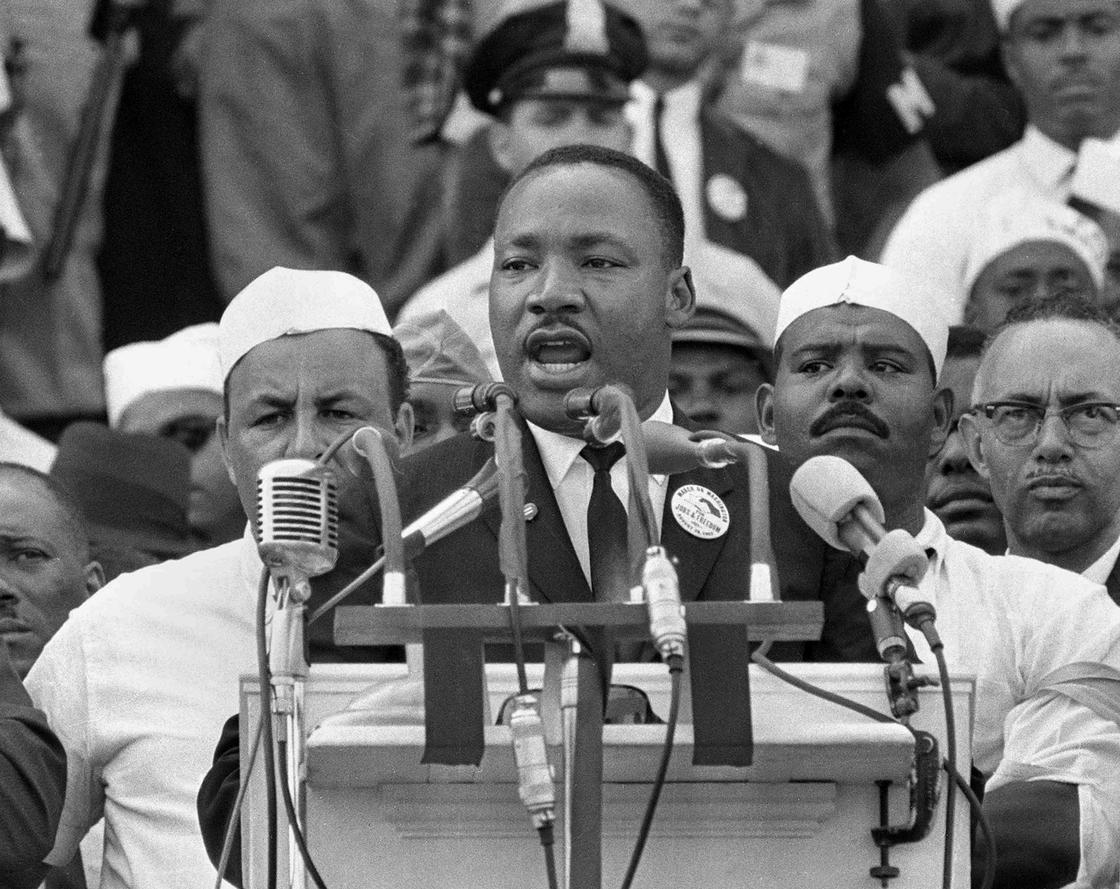
Martin Luther King Jr. showed the world that change can happen when people stand together for what’s right. His dedication to equality and nonviolence taught everyone the power of hope, courage, and compassion.
Even though his life was tragically ended, his dream of a fair world lives on, inspiring us to keep fighting for a better future So, as we celebrate his birthday, let’s remember his message and continue to work toward the world he dreamt of: a world where everyone is treated with respect and kindness.


Pigeons are so common in cities that we often don’t really think about them. But when you take a closer look, these birds are extraordinary urban survivors with surprising intelligence and adaptability. Originating from Europe, North Africa, and Western Asia, pigeons have somehow found a way to thrive in the relatively new environment of skyscraper filled cities. With urban architecture providing endless nesting opportunities, pigeons have taken to city life with ease.

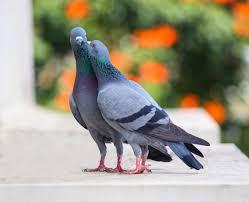
One reason pigeons thrive in cities is that they can nest almost anywhere high and sheltered, such as ledges, gutters, and bridges Their preference for elevated nesting spots keeps them safe from ground level dangers, while giving them a vantage point to scout for food. In fact, pigeons are remarkably adaptable feeders. While wild pigeons might naturally eat seeds and grains, urban pigeons have developed a taste for just about anything, from crumbs to discarded snacks. This broad diet is unusual among birds, with many species relying on specific food sources. However, pigeons’ adaptable eating habits have given them a significant advantage in unpredictable city environments.
Pigeons aren’t just good at surviving; they’re surprisingly intelligent. Scientists have discovered that pigeons possess exceptional memory and problem-solving skills. They can remember human faces, recognise letters of the alphabet, and even distinguish between different artistic styles, which is impressive for any animal. In one famous experiment, pigeons were trained to differentiate between paintings by Monet and Picasso, and they could correctly identify new paintings by either artist This isn’t a unique case; other studies have shown pigeons can recognize up to 58 different words, demonstrating cognitive abilities once thought exclusive to primates.
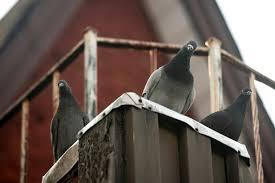
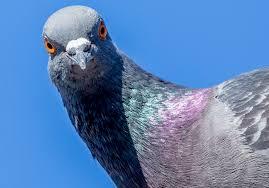
Statistics further show that pigeon populations are self-regulating to an extent; in cities where food is more scarce, pigeon numbers tend to be lower, while in areas with ample food sources, numbers increase. This adaptability has allowed pigeons to establish strong, stable populations in cities around the world, showing how they can thrive without overwhelming the ecosystems they inhabit.
Though they’re sometimes seen as pests, pigeons actually play a role in urban ecosystems By eating food waste, pigeons help reduce litter, and their presence supports other city-dwelling wildlife. Predators like hawks and falcons rely on pigeons as a food source, creating a food chain that brings balance to urban environments. In this way, pigeons help maintain ecological harmony, even if their role is not always appreciated.

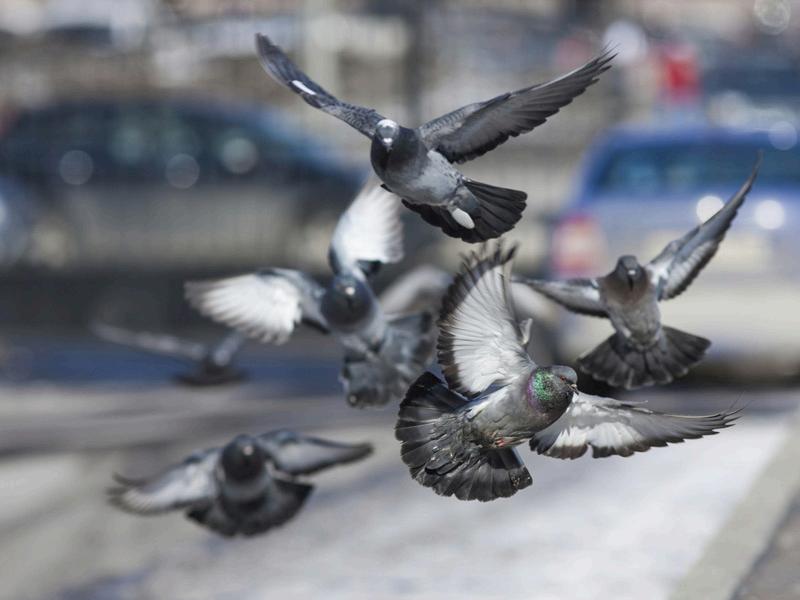
Far from being mere pests, pigeons are actually remarkable survivors with sophisticated intelligence and adaptability that can rival many other species In a world that often views urban wildlife as nuisances, pigeons remind us that cities are living ecosystems, where animals can adapt in unexpected and inspiring ways. Observing pigeons in cityscapes can offer a new appreciation for how life flourishes even in the heart of human habitats.
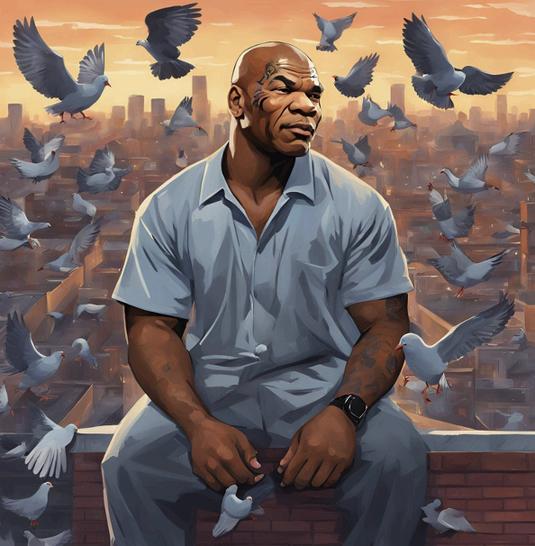
Mike Tyson is one of the most fascinating figures in sports history. Known as “Iron Mike,” Tyson’s life has been a mix of triumphs, controversies, and unexpected twists. You might know him from his recent fight on Netflix against Jake Paul.
Here are seven intriguing facts about the former heavyweight champion that reveal just how unique he is.
1.He likes pigeons: Mike Tyson is like batman; instead of his parents being killed one of his pigeons was killed during his childhood, which then inspired him to get into boxing. He recently got gifted one by his opponent, Jake Paul, which he threatened to feed to his falcon
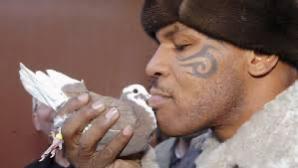
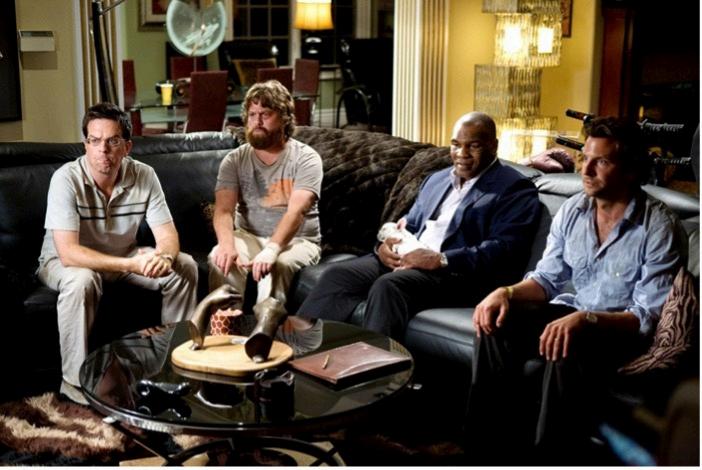
2. An Acting and Pop Culture Icon: Beyond boxing, Tyson has made numerous appearances in movies and TV shows, including ‘The Hangover’ series, where he played himself. He also made appearances in ‘how I met your mother’ and ‘Rocky Balboa’. He also appeared in music videos such as ‘Godzilla’ by Eminem and juice world.
3. Prison Time:
In 1992, Tyson was convicted of a serious crime and spent three years in prison. During his incarceration, he reportedly converted to Islam and reflected deeply on his life and choices.

4. Face Tattoo:
In 2003, Tyson got a tribal tattoo on his face, which became one of his most distinctive features. While it was controversial at the time, the tattoo has since become an iconic part of his persona. The tattoo represents courage, strength, and his warrior spirit, which aligns with Tyson’s fierce persona in and out of the ring.
Tyson has spoken about how the tattoo symbolizes his personal transformation during a challenging time in his life. He has admitted that it was a spontaneous decision, but it ultimately became an integral part of his identity and a global symbol of his larger-than-life personality.
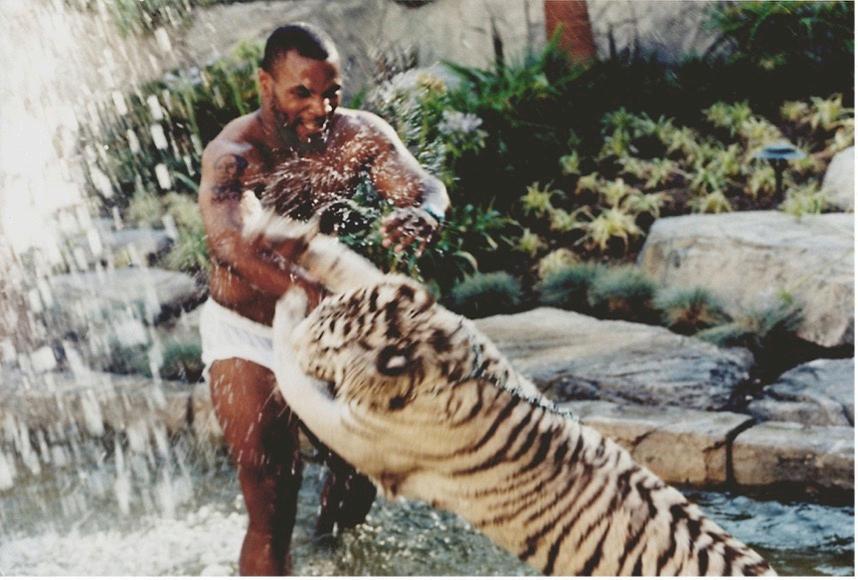
6. A Philosophical Side: Tyson is a complex individual who often surprises people with his depth. He has written a memoir, “Undisputed Truth”, and frequently shares insights about his personal struggles, redemption, and the meaning of life.


5. Owned a Pet Tiger:
At the height of his fame, Tyson owned three Bengal tigers, including one named Kenya. The tiger reportedly cost him $70,000 and lived with him for over a decade. Tyson has said that Kenya was like a member of his family, though he ultimately had to give her up due to safety concerns and the immense cost of care (over $4,000 a month!). The tiger became so iconic that it was referenced in The Hangover, where Tyson famously appeared alongside a tiger in his mansion.

7. The Bite Fight:
One of Tyson’s most infamous moments came in 1997, when he bit a piece of Evander Holyfield’s ear during a championship bout. This shocking incident led to Tyson’s disqualification and remains one of the most talked-about moments in sports history.
(answers at the back of the issue!)
1.
What is the national bird of Belgium?
A. Seagull
B. Common sparrow
C. Common kestrel
D. House finch
By Noah De Burca
2. What is a group of crows called?
A. A Flock
B. A Murder
C. A Scavenging
D. A Descent
3. When do birds migrate?
A. Spring and autumn
B. Spring and summer
C. Autumn and winter
D. Summer and winter
4. Which bird can’t fly?
A. Bar headed goose
B. Common crane
C. Whooper swan
D. Penguin
5.What is the most common bird in the world?
A. Domestic chicken
B. Common pigeon
C. Swan
D. American robin
6. What do penguins do to keep warm?
A. Bury under snow
B. Igloo
C. Huddle together
D. Thick feathers
7.What is the tallest bird in the world?
A. Flamingo
B. Emu
C. Ostrich
D. Crane

8. What is the earliest bird species?
A. Dodo
B. Pterodactyl
C. Pteranodon
D. Archaeopteryx
9. What is the smallest bird?
A. Kiwi
B. Humming bird
C. Finch
D. Lovebirds
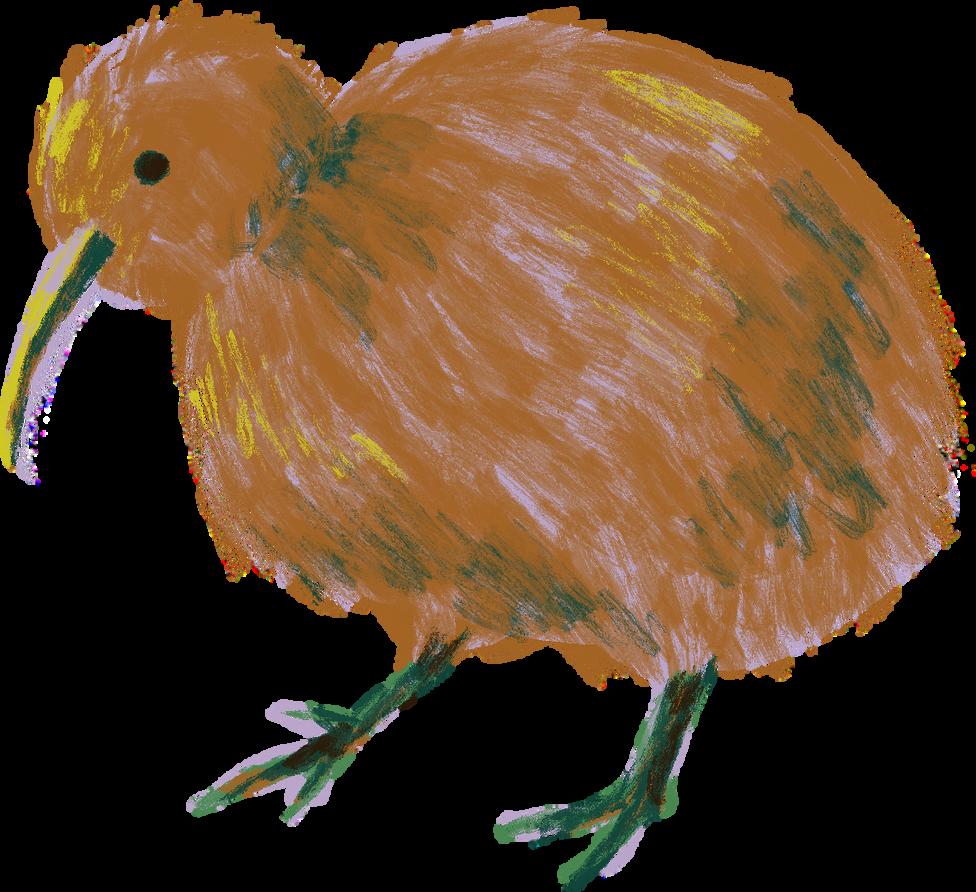
10. How many different birds species are there?
A. More than 20,000
B. More than 35,000
C. More than 11,000
D. More than 15,000

The concept album is one of music's most ambitious and artistic formats. Unlike traditional albums, which often function as collections of unrelated songs, concept albums revolve around a unifying theme, narrative, or idea. This format has allowed artists to explore complex stories, deep emotions, and innovative sounds, often transcending the boundaries of individual tracks to create a cohesive, immersive experience.


A concept album builds its identity around a central narrative or theme, threading each song together like chapters in a book. These albums often demand more from their listeners, requiring them to engage with the music as a complete work. While early experiments with thematic albums appeared in the 1940s and 50s (e.g., Frank Sinatra's In the Wee Small Hours), the concept album as we know it only became widespread in the 1960s and 70s, largely thanks to rock and progressive music.

Pink Floyd's The Wall is a deeply personal and political masterpiece. The album tells the story of Pink, a rock star who isolates himself behind a metaphorical wall to shield against trauma, societal pressures, and betrayal. Featuring some of the bands most well known tracks like "Another Brick in the Wall (Part 2)" and "Comfortably Numb," the album's themes of alienation and rebellion resonated universally with the audience. The Wall also spanned across multiple mediums, as a live show and a film were released after.


BYNICHOLASWILLAN

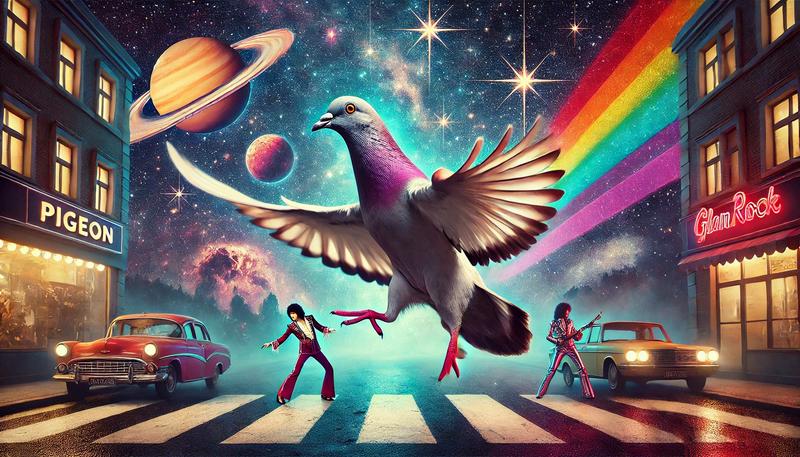
David Bowie's alter ego, Ziggy Stardust, was an alien rock star whose story of fame, decline, and apocalyptic prophecy captivated audiences. Songs like "Starman" and "Rock 'n' Roll Suicide" chart Ziggy's rise and fall, blending glam rock theatrics with social commentary. Bowie's commitment to the character both on and offstage made this a landmark in music and performance art.


Considered the first ever concept album and often hailed as one of the greatest albums of all time, Sgt. Pepper's was a groundbreaking release. The Beatles adopted the persona of the fictional band called "Lonely Hearts Club Band," creating a framework for experimental tracks like "Lucy in the Sky with Diamonds" and "A Day in the Life." (One of my favourite songs of theirs). While the concept is loosely held together, the album's innovative production and cohesive feel marked a turning point in the use of the album format as art.

The concept album is proof of the power of music. By fusing storytelling, innovation, and artistic ambition, these albums challenge listeners to engage more deeply with their themes and messages.
While they may not dominate the charts as they once did, many brilliant concept albums are being released even now. Some of my personal favourites being: Hellfire by Black Midi, Ants From Up There by Black Country, New Roads, Twin Fantasy by Car Seat Headrest and PetroDragonic Apocalypse; or, Dawn of Eternal Night: An Annihilation of Planet Earth and the Beginning of Merciless Damnation by King Gizzard and the Lizard Wizard. The legacy of concept albums endure, proving that music can be more than entertainment, it can be art.

Imagine moving from the North Pole to the South Pole every spring, spending all summer unpacking and making your home, only to move straight back to the North Pole in early autumn. This is exactly what the Arctic tern does on the wing! Bird migration is undoubtedly one of the most amazing feats of the natural world. Unfortunately, with climate change creeping upon us day by day, these avian masters of migration are facing the devastating prospect of extinction. Let’s dive in...
You may have noticed last March that you didn’t need a coat when you left for school, or perhaps you left your scarf behind in early November, deciding it wasn’t quite cold enough. Summer and spring are starting earlier every year, making these seasons comparatively longer.
You might be thinking: Great! I don’t like cold weather anyway. However, these changes have far more serious consequences for migratory birds. These shifts in seasons trigger something scientists call ‘phenological mismatches.’ Take the pied flycatcher, for example. This small black-and-white bird, no bigger than a European robin, spends its summers in West Africa and migrates to Europe in spring.
Pied flycatchers feed mainly on small caterpillars, which are particularly sensitive to temperature changes and are now hatching earlier in the season. Meanwhile, the flycatcher’s migration is triggered by day length, which remains unchanged despite global warming. As a result, when the flycatchers arrive at their breeding grounds in Europe, the caterpillar population is no longer at its peak. This leads to food shortages at a critical time when they need to feed their young. The impact on pied flycatcher populations has been devastating In the UK alone, their numbers have declined by almost half over the last two decades
Climate change doesn’t just mean warmer weather and longer summers. It also brings extreme weather and rising sea levels, which are far less appealing. Storms, droughts, submerged habitats, and hurricanes are all new challenges migratory birds face.
Fortunately, birds have shown some ability to evolve and adapt to survive these changes, a marvel of natural selection. According to the University of Durham, some birds may stop migrating altogether because milder winters reduce their need to fly south Migration itself may become a relic of the past
Other birds have adapted by migrating at night to avoid high daytime temperatures Nocturnal migration, already common in many bird species, also helps them evade diurnal predators like hawks Scientists have even observed that some birds are becoming smaller to cope with rising temperatures Birds living in tropical regions already tend to be smaller because a higher surface-area-to-volume ratio allows them to dissipate heat more efficiently
While birds may seem to be adapting well, this is not the whole story Evolution is a slow process driven by natural selection and typically unfolds over millions of years For
Birds require a lot of energy to fuel their long journeys, so providing bird feeders or suet balls during migration season is a great way to help However, it’s important to keep feeders and bird baths clean Dirty water and food can do more harm than good by spreading diseases To prevent this, clean your feeders at least every two weeks
Window collisions kill between 300 million and 1 billion birds annually, according to the National Audubon Society To help prevent these collisions, consider adding glass treatments during migratory periods UV coatings are an excellent option they’re invisible to humans but appear as obstacles to birds, helping them avoid fatal crashes
If you have pets, particularly cats, keep them indoors as much as possible during migration peaks (from October to November and April to May).
Finally, birds that migrate at night rely on the stars for navigation. Light pollution from cities can disorient them, causing many to fly until they are exhausted, sometimes leading to death. You can help by turning off unnecessary lights after sunset or closing your blinds to reduce light pollution.
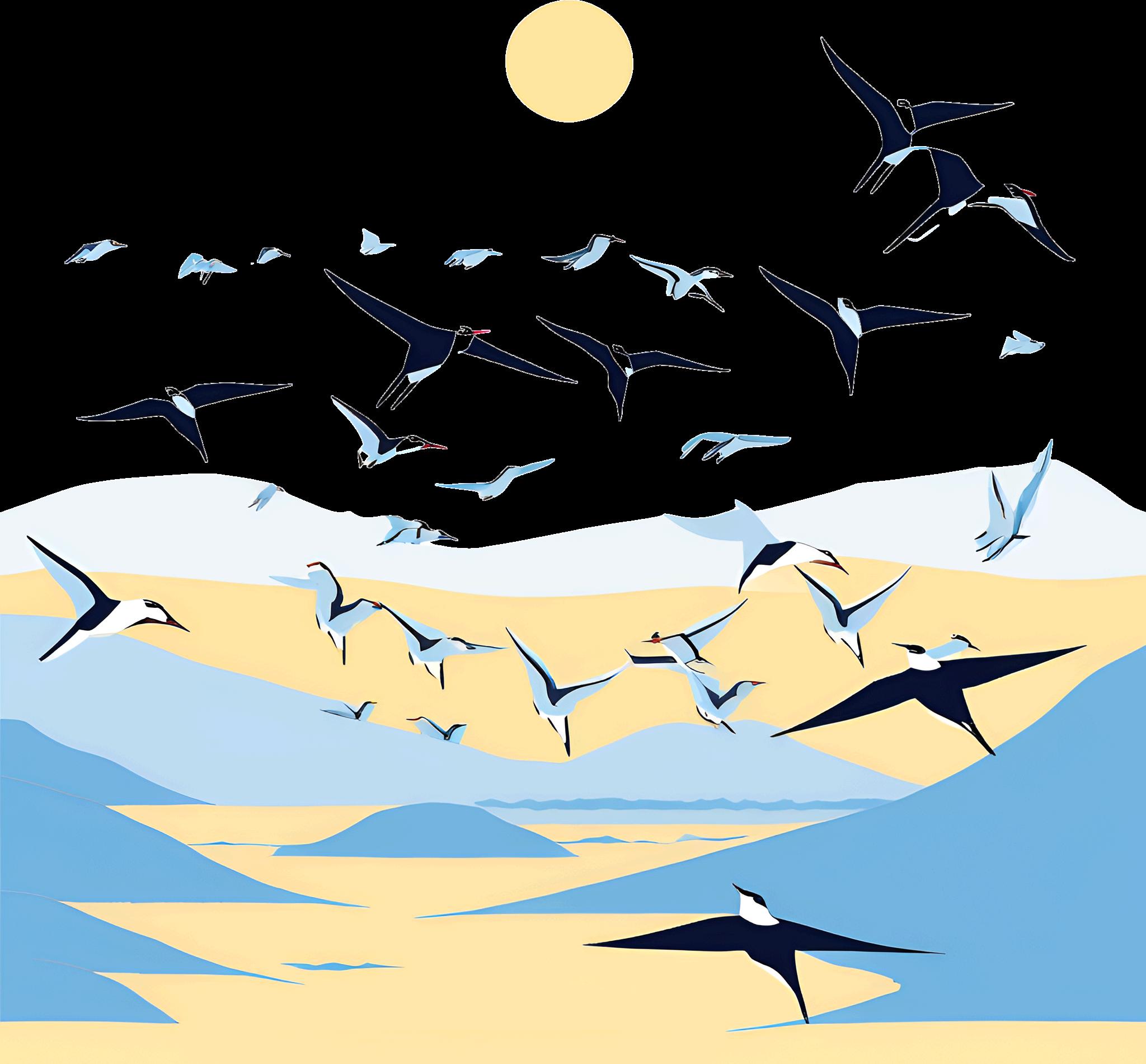

This year, our Amnesty group, made up of three dedicated members, worked hard to create positive change that had long-lasting impacts. Through several impactful projects, we aimed to raise awareness, inspire action and support those in need.
In October, we turned our attention to International Men’s Day, an issue often overlooked. This was the first time we had marked it and it was a catalyst for very important conversations about the issues thatmenandboysfaceintoday’sworld.
For World AIDS Day, we organised a bake sale and sold red ribbons to show our solidarity with those affected by the condition, alongside spreading awareness around our school about the ongoing challengedfacedbytheseindividuals.
We were successfully able to raise over 50 euro thatwentdirectlytowardsresearcheffortsinhopes tofindacurefortheillness.
In December, we participated in Amnesty’s international Write for Rights campaign The initiative focused on collecting letters for prisoners of conscience- individuals wrongly imprisonedforstandingupfortheirbeliefs
We encouraged students and staff across the schooltowriteletters,ensuringthattheirwords, alongside others around the world, were heard to demand justice and advocate for basic humanrights.





Additionally, another project that was conducted was the Refugee Initiative, where we focused on supporting local refugee centres.
Through the generosity and collaboration of our school community (students and staff) we collected over 150 gifts that were distributed to young refugees at the Woluwe Refugee Centre and the Rixensart Centre, in hopes to brighten the Christmas season for them




Interviewed by: Laura Senescall and Vani Tiwari
Written by: Laura Senescall
BSB Futures is a school-wide initiative of The British School of Brussels that seeks to enrich student learning by building connections with the professional world.
BSB Futures captains Laura and Vani interviewed Melanie Warnes, the principal and CEO of BSB since 2016, who will retire on December 20, 2024. The interview aimed to reflect on her successful career and discuss her early experiences at BSB and her future plans for retirement.

Melanie Warnes joined BSB as its new principal in 2016, bringing with her a high level of experience and expertise. As of December, the 20th 2024 Melanie Warnes will be retiring from her teaching career and her role as principal of The British School of Brussels. As a result, the BSB futures team were keen to interview her to look back over and celebrate her successful and illustrious career We asked Melanie about her early experiences here at BSB and what she plans to do next during her retirement.
When asked how she came to be at BSB and her career prior, Melanie told us all about her first experience as a secondary English teacher and later her position as headmistress Melanie’s career prior to BSB was staggering in itself. She had started work with schools around the UK, helping them develop and enhance the student and staff experience. This led her to the position of CEO of seven schools within the UK, improving them all and creating an interconnected system. When the question of why Melanie chose to work at BSB came up her answer was fascinating
Question: Was there anything about the job description here in BSB that was the main interest for you?
Melanie: It was around the values that I think So, I think like everybody who comes here, I was intrigued by the the first name terms and the no uniform and all of that and you think, oh, this will be interesting to see what this looks like
But really the main thing was the, the statements about what the schools stood for and the really international population at the school I couldn't ignore my own values For example, I couldn't go and work in an elitist private school But this isn't like that This isn't a posh school in a foreign country This is truly an international school
So, it was the truly international nature, the fact that it's not selective by ability, that's really important to me, and also the commitment to a holistic education Those were the three things that really caught my eye And then when I came on the visit, I have to be really clear, I wasn't sure So it [ the interview] was a two day interview and I wasn't completely sure on the first day It was It was when I woke up the second day and was waking up thinking, right, I just wanting to look at that, and I really think the school could improve that...
Question: Just on your early experiences here at BSB, what was it like? I guess in the first week here at BSB or any moments that stood out, particularly that had you surprised or excited?
Melanie: I was surprised at how little there was going on, really going on between primary and secondary, that there were two very different places in lots of ways I don't need to go into the detail And that surprised me, given what the school felt like and given what the marketing around the school was. So that was something that surprised me. And I hadn't picked it up when I was on interview and I didn't have many visits before I came. Not like the new principal, who's been in a lot. And because the former principal before me left, she left in March and I started in September. And it wasn't the same. It definitely wasn't the same handover So I hadn't really picked that up, and I was a bit surprised about that and thought, no, no, no, that we really do need to be together And I also felt like the staff wanted that to happen I felt like it was a it wasn't just me, that it was what the staff wanted to happen and now it feels really different. I mean, still, obviously there are still things, but it feels very much like we are one school together. So that was something that was a surprise for me. It was almost like I, as the leader, had to almost take away some barriers So it wasn't that I did things, it was that I took some things out to get things out of the way for people, which is what leaders have to do, they have to take barriers away So that was that one
Oh, the first music concert I heard, I was just, I, I've never heard music to the standard in any school I've ever been in, as the standard it is here. I thought that BSB would be winning more sports trophies then, and we are now, and I'm really proud of us now because we're just about beating everybody in the world, I think in every tournament In fact, I had a head the other day (who will remain nameless from another country) who said his school were actually thinking about not being in the tournaments that BSB was in, because we were winning everything. So that's good.
A third one for you Oh, it's hard to think because if I think if I'm sitting here now thinking back, I just have a whole load of feelings that are really warm, positive feelings I'm finding it harder to think of particular incidents.
Question: What do you feel is one of your proudest moments in BSB?
Melanie: I can say one which is about everybody, and then maybe some things that are a little bit more personal
So one of my most proudest moments about BSB is the day that the Board of Governors decided to agree to, for us to change our admissions policies so that we would admit children who were refugees from war, and the fact that we have offered 64 places to refugees over the last two years And that's been supported by everybody So why am I so proud? I'm really proud of that, because we put on our guiding statements about being an educational force for good, and it's ever so easy to write words But if you live by them, and that's an example of living by that and you can't do it. I don't have the authority to say that on my own. So the board have to agree it. Everybody has to agree it. Parents have to be on board and students have to be welcoming. Staff have to change their teaching overnight to accommodate people who are stressed We have to have the right kind of care, guidance and support to look after people who are in distress, and living in a traumatised context So it's like a pride in every layer of BSB, you know, not that we did it, but also that we could do it...
Other things are I know when I came here, I said, whatever we do, we have to do it properly and well. And so it's like just on that level of the music, the drama, the sport, the academics, let's just do it really well and let's try not to get stressed about it, but let's, let's do it really well I guess for me as well, it's the bit about the professional learning for staff, which helps you guys eventually I’m really proud of that I’m proud that we're one school.
I'm really proud that we keep winning everything. Actually. But we're not doing it for the sake of winning It's that we're doing what we do, and and it's being recognised That's there's a difference to some people go out where winning is the goal Our goal isn't to win Well, sometimes it is But it's our work It's what we're doing because it's the right thing to do and then from the outside the world to recognizes what we do is amazing.
Finally, we asked Melanie about her plans for the future, after such a successful and impactful career at BSB. Her response did not disappoint, her plans as brilliant and impressive as she is
Question: You’ve been in education for almost the entirety of your working life, so what is next?
Melanie: Well, what I do know is I can't not work. I love working and and I like problem solving and I like projects. So something I'm actually going to do is some independent consultancy, so helping. I’m going to making a business to go and help governing bodies and senior leadership teams on strategy, how to bring communities together, how to change. I'm really interested in workplace cultures and how you can get the best out of your people in a really humane way. So it's good for everybody. I'm going to be doing that part time, and I haven't done anything about that yet apart from just think about it. I've never worked for myself. I've got to go and set up a little company and get on with that.
In the very first instance, I'm moving to Greece. We will live in Greece and in the UK, we've got a house in the UK as well. I've got a massive garden. So the first instance I'm going to learn how to grow grapes, I've got three vines. I also have learn to deal with snakes. So those are the two things. Those are my first two missions. What to do about snakes and and how to grow grapes. Actually, there's a little rhyme in there, isn't it? Rhythm. That's the immediate thing.
Rounding off the interview we probed Melanie with inquiries about her advice for students, both youngerandolder.Shesupplieduswithoneofthegreatesttakeaways.
Melanie: I was thinking about advice because often people say, oh, follow your dreams. And it's like, what if you haven't got a dream? You know, actually not everybody has a dream or doesn't know who they are. I think there are things like: Try to work out. Try to know yourself. Like what are your strengths or weaknesses? How do you like to work? How you are? How you are when you're under stress?
One of the things I know about myself because it's been tested is I am the kind of person you want around if there's a crises, I go very calm. I am very kind of clear headed and very analytical in those situations. So some people couldn't do this job or I couldn’t do what other people do. For some this job, costs them a lot in themselves. It's like finding out about yourself and how you are when things are going well or not so well. Do you get energy from working with other people? Or do you prefer to work on your own? So getting to know yourself will help you decide what to do.
And the advice? If you have a dream, that's amazing. But I would also have a plan B dream as well. If I'd have thought about what I dreamt of doing in school, I never wanted to be anything. I just wanted to stay at school. I loved being at school, so I guess I have done that. And also, when I looked at the careers I looked at when I was leaving school, I thought I wanted to work in the police force. I like detective work, but actually, luckily for me, I was too. There was a height limit, and I was too short. That's why I couldn't be an air hostess either. Too short. And I always look back and think, gosh, you know, actually on a random thing of which genes I inherited in my family because otherwise I'd have probably gone into the police.
Then having a teacher at school who sat me down and said, you have to apply to university, you're a really bright girl. You don't have an idea clue in your head about what you want to do. You have to go to university. And she picked out six prospectuses because it was the days when it was all paper. And she said, here's the six and you need to choose three of them. So if I'd not had her, I would not, probably not have even gone to university. So there you go. So you need one teacher. And I've been trying to track her down. I was thinking, I think it comes with thinking about leaving and retiring, I was thinking I wanted to track her down, to say thank you. Because I wouldn't have been doing any of this, I don't think if she'd have obviously spotted something in me that I didn't see in myself.
Melanie has been the principal of BSB for eight years. Her work here has been extraordinary and truly amazing, helping to teach and lead the societies next generations into the world. Melanie will be remembered as a fabulous principle and a beloved member of staff. We as the BSB futures team took away so many great things, included below a list of our top takeaways.
Work with people and companies that reflect your personal beliefs, ideals and values There will always be that one teacher that changed everything, make sure to listen Take every opportunity that you can, you never know where your life will lead Figure out who you are, the rest will fall into place



The BSB Futures team are forever grateful to have had the opportunity to interview Melanie Warnes at the end of her fabulous career.
We wish her all the best in her forthcoming adventure and hope she will look back fondly at all the memories that have been madehere.

By Lucia Coibion and Dorottya Kovacs

Working as part of a team in a production can be a highly rewarding experience, Gabriel explains. "When you are in a production or musical or anything really, which includes the arts, I think that you create good connections with everyone, no matter the age. Everyone's in it together and in a comfortable atmosphere."
Reflecting on how this production compared to previous ones, he shared that this was the most challenging role he had undertaken. Over the summer, he diligently prepared, memorizing lines and developing his interpretation of the character. Unlike past roles, this one required portraying a wide range of emotions, from joy to frustration, which was a new and rewarding experience.
When asked about the potential for a future career in acting or singing, he expressed a strong interest in pursuing acting, especially in film, noting its global accessibility. While he loves theatre, he find the medium of film to have a broader reach. Gabriel's studies also align with his prospects for the
future, as he takes higher-level theatre studies in the IB diploma. The production stayed true to the original script with only minor adjustments, such as shortening a single scene that featured a lengthy monologue. Indeed, the director, Jane Whitehouse, considered the message to be clear and the scene was unnecessary to the plot.
Performing the play’s more controversial and provocative scenes, set in the 1940s, was a unique challenge for this. While these scenes reflected outdated norms, Gabriel sees the experience as an opportunity to step outside his comfort zone and portray a different era authentically.
“I think my favourite song was I've come to wive it wealthily in Padua, not because of the meaning of the song but because of the atmosphere it created with all the men coming together. It was quite a strong and fun song to do on stage and I hope it was fun for the audience as well."
For Sasha, the production pushed her singing abilities to new heights—literally. She described singing the lowest and highest notes she had ever performed on stage, adding that she was surprised her voice held up through it all. This production also marked her first time singing an orchestra solo, which she found particularly exciting. Working with students across different year groups also brought unique challenges and rewards. Sasha mentioned performing From This Moment On with Jamie, a younger student. Although the romantic nature of the song presented a unique challenge at first, she noted that “he was really good in the end, and it was totally fine.”
Looking to the future, she expresses her desire to continue music and drama beyond school. She is currently studying both subjects at A-level and hopes to pursue music at university, whether as part of a degree or simply as a hobby. Addressing some of the more controversial scenes in the production, Sasha recalls the challenges of singing “I am ashamed that women are so simple.” While she loved the melody and enjoyed performing it, she acknowledges the outdated nature of the lyrics. To make the performance more light-hearted, she added a “massive thumbs up” at the end to signal her awareness and ensure the audience understood the irony. She loved moments backstage, particularly during Too Darn Hot, when she had the chance to watch the performance from the green room.
Regarding her favourite songs, Sasha found I Hate Men particularly enjoyable to perform, despite it being out of her comfort zone. She also highlighted Wunderbar, a duet she performed with Gabriel, as a personal favourite, especially because it was the first song they choreographed, making it both fun and memorable.
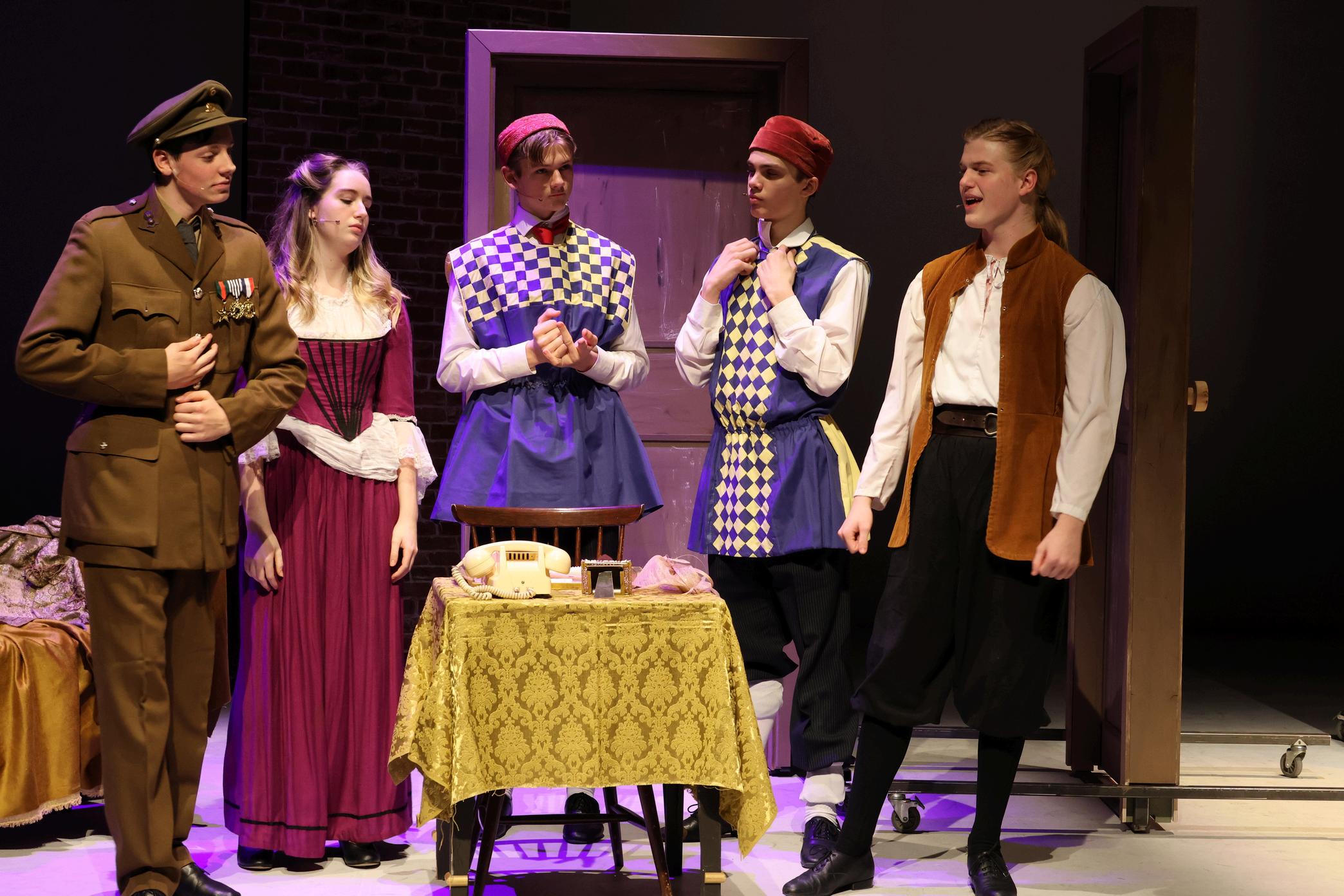
When reflecting on what they learned about themselves during the production, Miles described it as a great lesson in managing stress. He explained that the final rehearsals were especially intense, as the cast reached the penultimate weekend without a full run-through of even a single act. “It was horrible,” he admitted, but by the final performances, everything came together, and the cast was able to enjoy the experience.
Meanwhile, Catriona shared that her biggest personal achievement was overcoming her dislike of dancing. “It’s my worst nightmare, and the fact that I managed to actually dance in it is shocking to me so I'm proud of myself for that."
When comparing this production to previous school performances, Miles found it far more engaging than Barnum He appreciated the opportunity to dance and sing more interesting material, noting that while Barnum was enjoyable, it felt dominated by a single lead role. This production, by contrast, offered more variety and ensemble moments, which he preferred. He also praised Naomi for her work on the choreography, which elevated the experience for everyone.
For Catriona, music and acting will remain hobbies, though she hopes to continue participating in choir and theatre. Miles echoed this sentiment, explaining that while he loves musicals and theatre, he sees it more as a passion to enjoy rather than a future career.
The production also featured an interesting creative choice in splitting a character’s role between two cast members."The way Tom, Dick or Harry is written is originally set to three suitors, who vie for the hand in marriage of Bianca.", Miles explains. "However, the song is a very harmonically dense and complex song so the decision was made that the actor playing Lucentio, who is the main suitor, wasn't able to learn the harmonies. A way had to be found to include him in the song, but not as a singer, so from that sprung the idea that the role for Lucentio could be split to have one person singing and one acting, who can push the story along. It's a little hard to get your head around because it is different to how it was originally staged and it seemed like a bit of an avant-garde idea, but I think it came together quite nicely. Of course it pads out the stage very nicely, which is great to support the main singer."
For Catriona, performing as a soprano in the ensemble brought its own pressures. She described moments where her higher notes stood out, but as someone accustomed to singing soprano in choir, she felt comfortable overall. The blending of voices helped alleviate any stress, and she was pleased with how it sounded
When asked about their ultimate highlights, Miles pointed to the performances themselves as the most rewarding part of the process “When it comes together, that’s the part where you really enjoy it,” he said.
As for their favourite songs, Miles immediately singled out Too Darn Hot, describing it as a long but incredibly fun number He praised its movement and energy, which made it a standout moment for the cast Catriona chose Cantiamo d’amore, appreciating its operatic style, which suited her voice well
Richard (Year 13) has been in the orchestra playing the clarinet since 2017
When reflecting on his most memorable moment in the orchestra for this production, Richard described the experience of finally playing with the singers as particularly special After months of rehearsing solely with the orchestra, the shift to performing alongside the singers brought a new energy and made the moment stand out. He also expressed plans to continue with music at university, explaining that the university he plans to attend has a student orchestra, and he's eager to become involved.
Comparing this production to others he's participated in, he noted that the music was more challenging than previous works, such as Barnum While not overly difficult, the complexity came from the style of the music, which included much more jazz "As you get older and you get better as a musician, you get better at deciphering between what's good, what's bad and being able to understand how you are playing and how you should change your style of playing to adapt to other musicians Even two years makes a big difference in that regard So, different challenges include being able to integrate my sound into the sound of the people around me, trying to make it sound better as a whole, rather than just getting my notes correct " When asked about his favourite song from the production, he highlighted a couple of pieces from the second act, particularly Too Darn Hot and Always True to You in My Fashion
Hazuki (Year 8) is the youngest member of the orchestra and Kiss me Kate is her first production
When asked what she learned about herself as a musician, she told us that she learned about the use of music as a medium of expression and how she felt it was a window of creativity She confided to us that one of the hardest challenges she faced was reading the music, because there are so many flats and sharps "I had to get used to it.". She also described the "vibe", as being quite hard to catch but said that the problem was overcome quite easily after a few orchestra practices As the youngest member of the orchestra she found practising and performing to be quite nerve-racking, but also very interesting to meet new people "It was really fun and a great opportunity!".
She describes her most memorable moment: "We were just tired, but really excited because it was the last night and everyone was talking and it was really nice. It was the fun bit because we were used to it and I think the actors also really enjoyed it" We asked Hazuki about her favourite songs and after a bit of thought she told us that she really liked the opening "For the audience, it was really engaging " She also really liked Wunderbar, partly because she takes German and that she connected to it more as a consequence Finally, the most fun ones in her opinion, as a cellist were Bianca and So in Love "It was fun to finally play the melody!"
C1. B2. A3. D4. A5. C6. C7. D8. B9. C10. How well did you do?
Let us know your results on Teams under the BSB Insider post!
